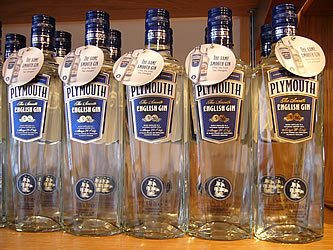Are Societies What They Eat? September 11, 2012
Author: Beach Combing | in : Ancient, Contemporary, Medieval, Modern , trackbackThere is no question that food and drink change us. If you begin to drink two litres of coca-cola a day, instead of a litre of fizzy water or if you start chewing on cocoa leaves instead of making banana smoothies your family will quickly notice a difference. Here there is and can be no controversy. Beach’s question though is whether there have ever been comestibles that have changed the ways that society as a whole operate. For example, there seem to have been times when alcohol was so strong and so cheap that large parts of the social order were permanently tipsy: the Soviet Union in its last twenty years had a serious vodka problem; likewise some European cities in the nineteenth century drank too much gin. This must have had an incidence on birth defects, casual violence, casual pregnancies and creativity.
Another interesting ingested substance is tobacco that arrived from the New World as a medicine (ahem) and quickly became a relaxant. And tobacco too changes people. The English historian David Ogg suggested (flippantly?) that tobacco relaxed Britons in the seventeenth century and helped the spirit of compromise abroad in those years: it is a nice idea, and might have something to it, particularly if men in power were more apt to smoke than the proles out in the street. Has there ever been a place and time that marijuana (or a lack of marijuana) had such a grip on a society that it notably changed that society’s character? Think China in the Opium Wars but a shortage of hashish? Coffee also has been blamed or praised for changes in eighteenth-century Europe. As a (now classic) Economist article has it: ‘Coffee came to be regarded as the very antithesis of alcoholic drinks, sobering rather than intoxicating, stimulating mental activity and heightening perception rather than dulling the senses.’ But is this true?
So far we have dealt with stimulants to one degree or another. But changing types of food could also affect whole social classes. For example, throughout Europe in the seventeenth and, above all, the eighteenth century the carbohydrate of the poor shot up as corn and potatoes and sometimes wheat took the place of fresh fruit and vegetables. This concentration on carbs meant that deficiencies became common including pellagra and scurvy: life spans dropped and average height buckled. However, it is possible that the surge in carbs had other effects. For example, it is sometimes claimed that pure carbs are the greatest aphrodisiac (forget honey and chocolate). Was the carbohydrate surge followed by a baby surge? Yes, but the carbohydrate surge was correlated with a poverty surge, something associated with baby booms so the numbers are hopelessly skewed. What about sugary drinks? What about orange food colouring? What about lead in piped water? Any other game changers? drbeachcombing AT yahoo DOT com



